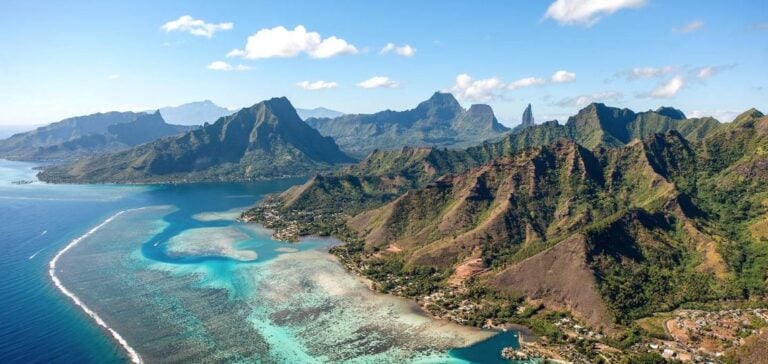The request for the revival of a parliamentary inquiry into the consequences of nuclear tests in French Polynesia was made on Tuesday by the communist group (Groupe de la Gauche Démocratique et Républicaine, GDR) in the National Assembly. This initiative aims to resume work interrupted after the Assembly’s dissolution in 2023.
During a press briefing, André Chassaigne, president of the GDR group, emphasized the need to resume investigations. “We are forced to resume an inquiry commission that was almost completed at the time of the dissolution,” he said. The GDR group, which includes numerous overseas representatives, has exercised its “right of initiative,” allowing each parliamentary group to request the creation of a commission of inquiry per parliamentary session. Final approval must be granted by the Assembly’s Defense Committee.
The Objectives of the Commission
This inquiry commission will focus on nuclear tests conducted by France in Polynesia between 1966 and 1996, addressing several key areas:
– The health consequences of radioactive fallout on the Polynesian population;
– The evaluation of environmental damage;
– The processes for compensating victims.
According to the initiators of this proposal, including Polynesian deputy Mereana Reid Arbelot, this work also seeks to foster reconciliation between Polynesia and the French Nation. The hearings conducted before the dissolution had already highlighted essential issues, such as the difficulty of assessing the extent of radioactive impacts and the administrative obstacles faced by victims seeking compensation.
A Collective Memory Challenge
Beyond scientific and legal challenges, this inquiry also addresses memory work. The nuclear tests, often seen as a taboo subject, have deeply marked Polynesia’s history and continue to fuel tensions. Lawmakers aim to deepen mechanisms to document this period, raise awareness, and develop concrete reparative measures.
During previous hearings, experts highlighted the complexity of precisely identifying the fallout from these tests due to a lack of transparency in archives and incomplete data. The challenge is thus twofold: establishing clear facts while engaging in a national discussion about these events.
Next Steps
The effective establishment of this commission depends on formal approval by the Defense Committee. Once validated, it will resume hearings and analyses suspended last year. This restart will shed light on debates over an issue that remains a point of contention between Polynesia and the French State.
By relaunching this inquiry, the goal is to meet the expectations of victims, their families, and the Polynesian population while initiating a dialogue on the historical responsibilities linked to these nuclear tests.






















